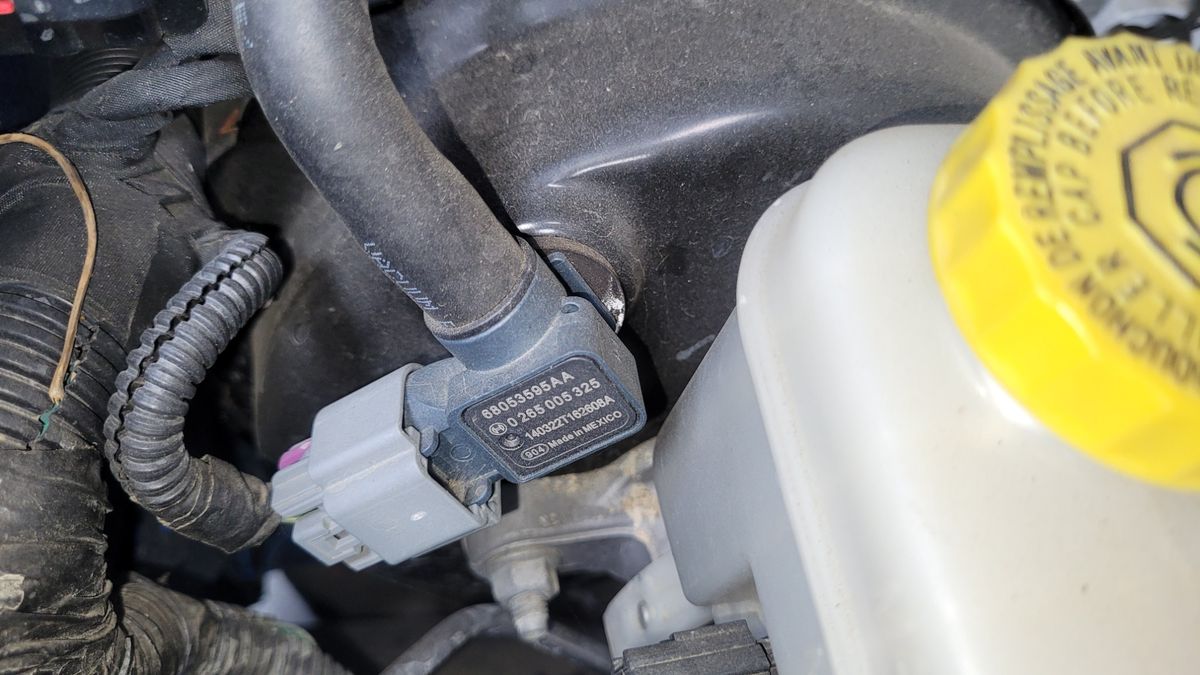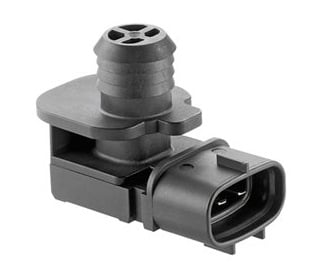What does the brake booster vacuum sensor do?
A brake booster system is used to reduce the amount of brake pedal pressure needed to stop your vehicle. This allows for improved safety and quicker, more responsive braking.
The vacuum sensor (or pressure sensor) is an important part of the brake boosters in modern cars. Its purpose is to monitor the amount of vacuum present in the brake booster, sending a message to your car’s onboard computer when more vacuum pressure is needed. If your car is unable to obtain a sufficient vacuum level, the sensor will activate a warning light on your dashboard and store a fault code in your car’s computer.
Learn more about how the brake booster system works
Without a functional vacuum sensor, your car will not be able to monitor vacuum levels in the brake booster. This can lead to problems with braking, including an increased stopping distance. For this reason, it is important that this part remains in good condition.
Please Note – If a fault with your Brake Boost Sensor causes your ABS warning light to come on the dash, then your car will fail a Warrant of Fitness (WOF), and it will need to be repaired / replaced in order to get your WOF.
When should the brake booster vacuum sensor be replaced?
Vacuum sensors are designed to last the life of your vehicle. However, harsh operating conditions can lead to it eventually needing to be replaced. When the vacuum sensor fails, your car will usually warn you in one way or another. In most cases, a check engine light or brake warning light will appear on your dashboard.
Symptoms of a bad vacuum sensor:
When the brake booster’s vacuum sensor fails, you may notice the following symptoms:
- Dashboard warning lights – When the vacuum sensor stops working, you may notice either a check engine light or brake warning light appear on your dashboard. Upon scanning your car with a diagnostic tool, you may receive fault codes that warn you about an intermittent circuit in the brake booster (P0559) or low voltage from the sensor (P0557).
- Increased resistance from brake pedal – When the sensor fails, your car’s brake pedal may become stiff or difficult to apply. This may also point to other problems in the brake booster system such as a damaged pump.
- Increased stopping distance – Without a working brake booster vacuum sensor, it may become increasingly difficult to stop your car. This is due to the sensor’s inability to measure important vacuum levels.
How important is this repair?
A damaged vacuum sensor should be replaced sooner rather than later. Just like any other problem with your braking system, a damaged sensor can increase stopping distance. This can affect the safety of your vehicle, especially in situations where you have to come to a sudden stop.
Brake Booster Vacuum Sensor Replacement in Hamilton
Is your car in need of a brake booster repair? If so, we can help! At Grimmer Motors, our talented team can fit your vehicle with a new, fully functional brake booster vacuum sensor. This will allow for your brake booster system to function correctly and quickly bring your vehicle to a stop when it needs to.
For brake booster vacuum sensor repairs, servicing and replacement in Hamilton, contact Grimmer Motors today!


